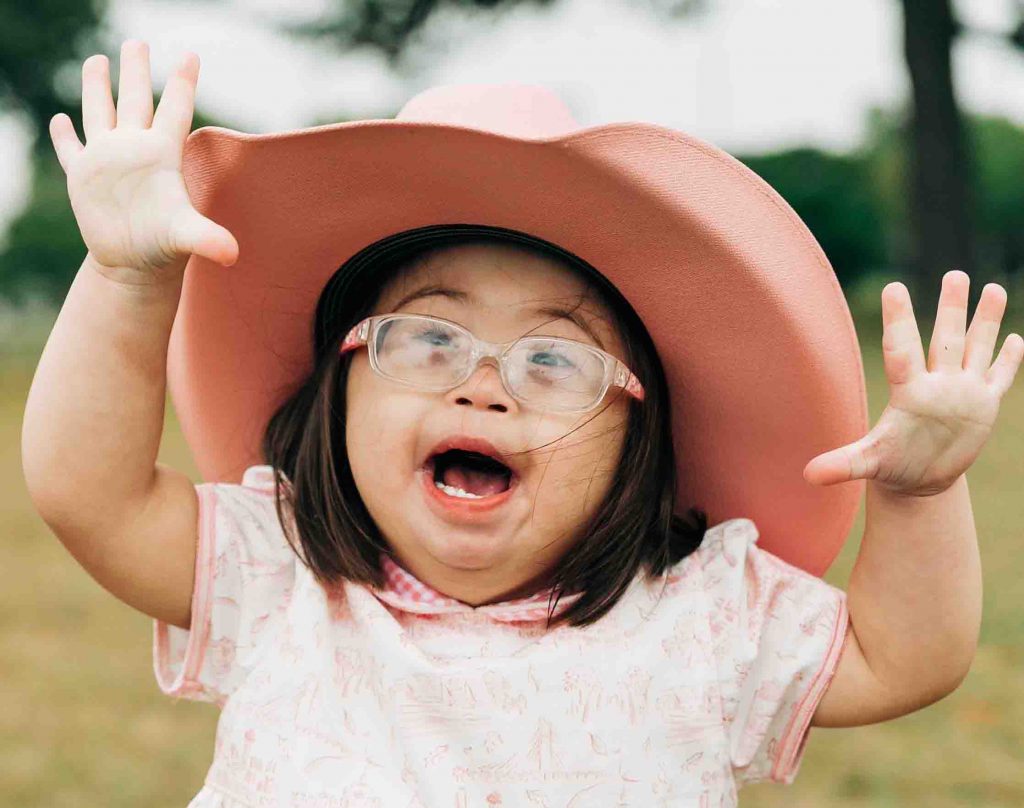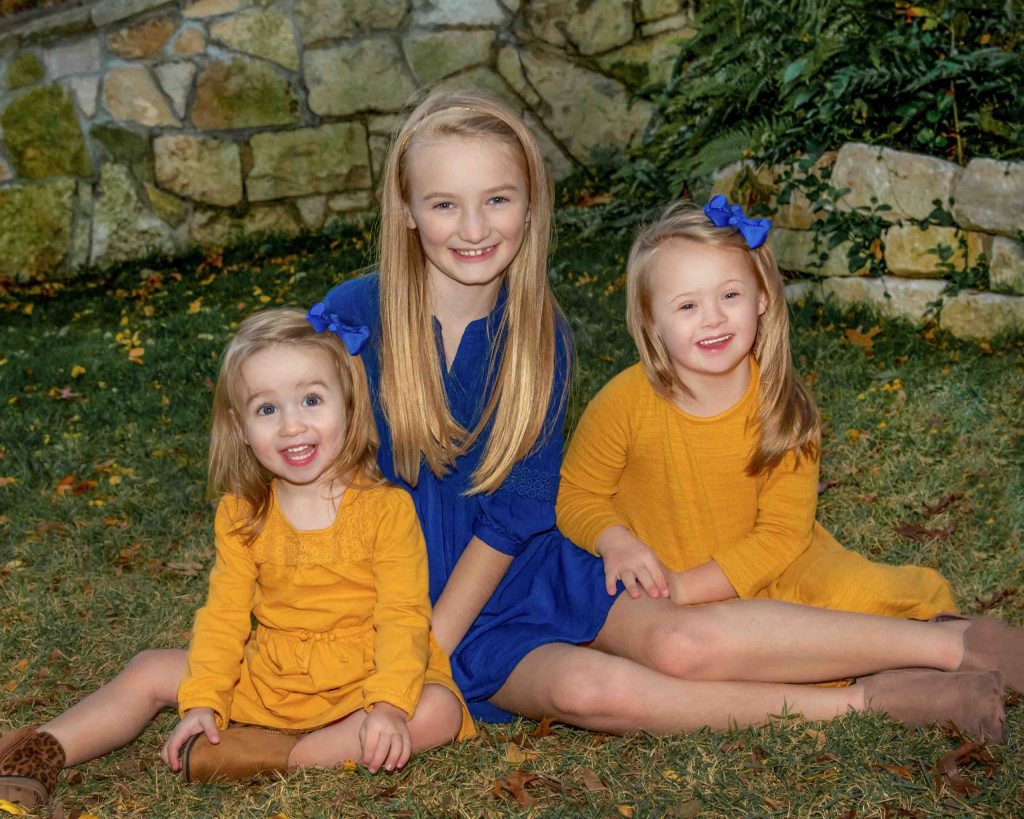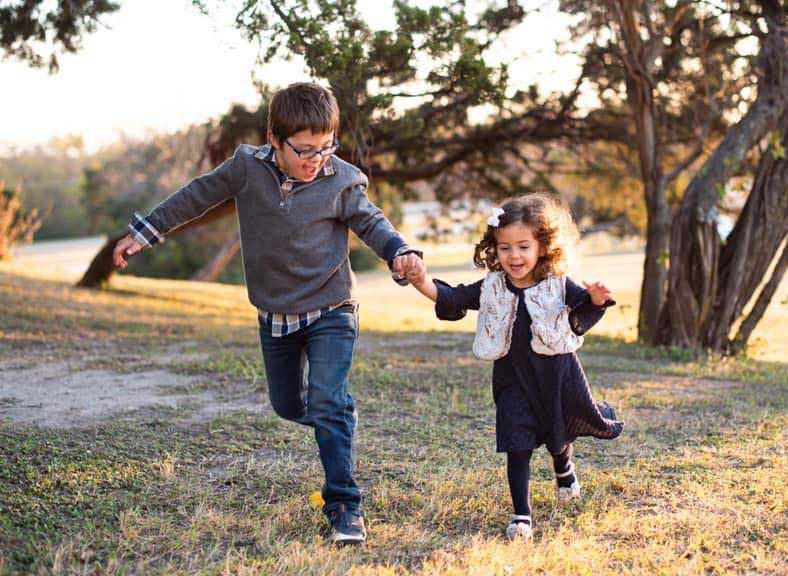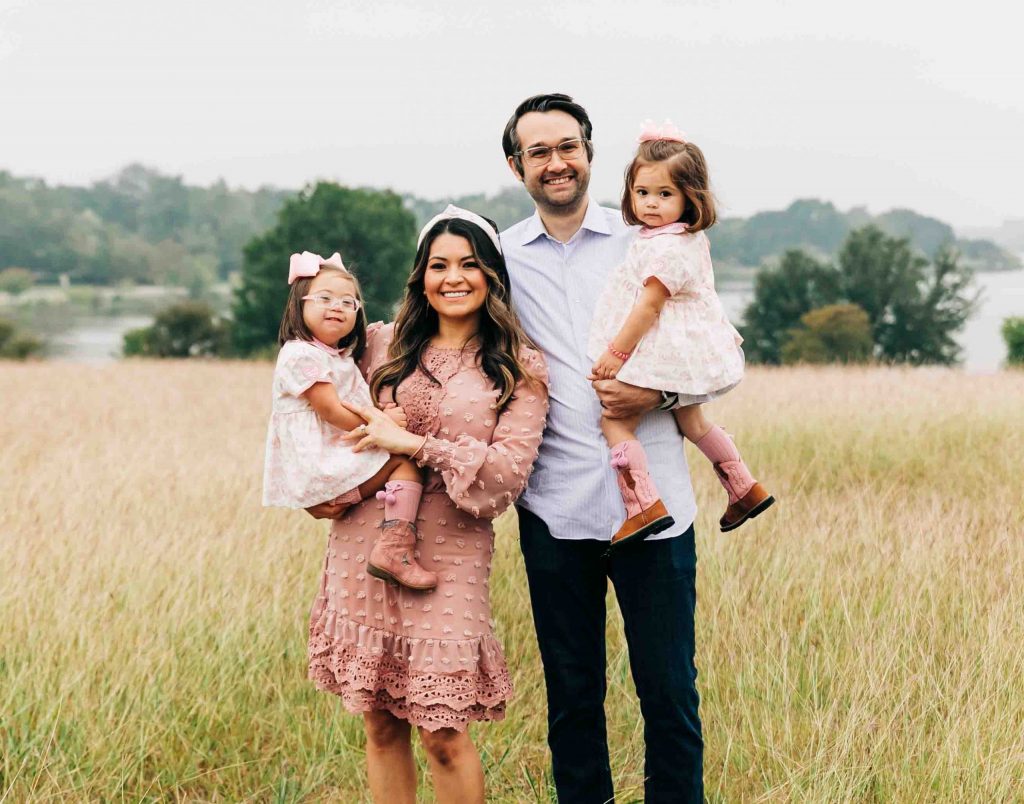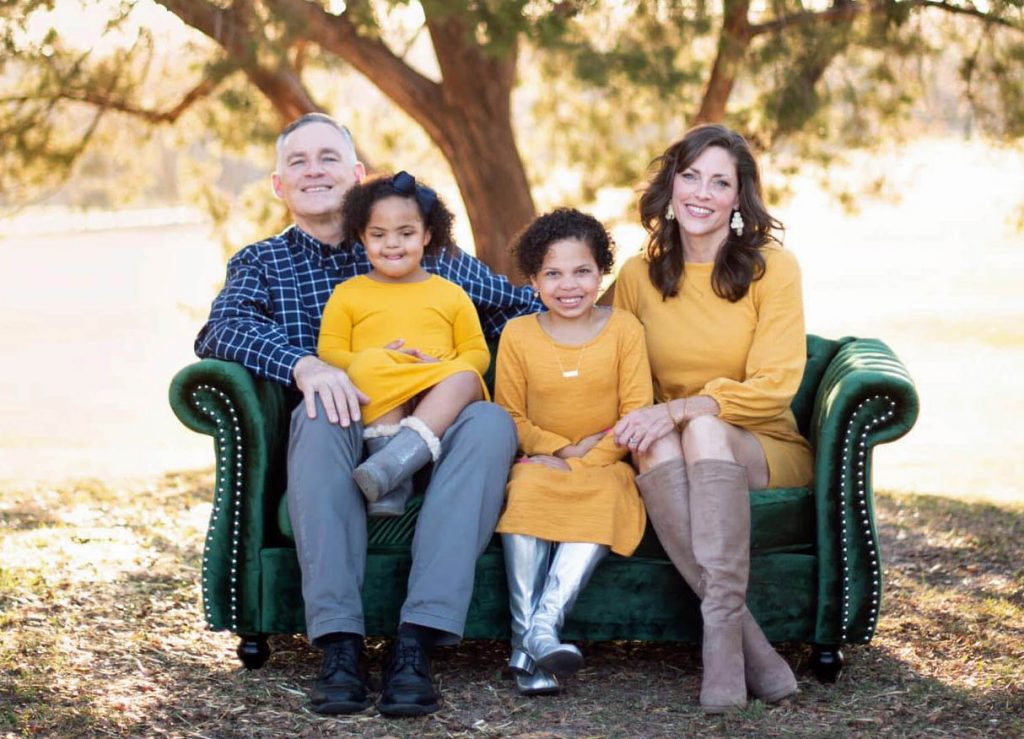On the first day of school last year, first grader Alora Huebner told her mother, Kristin Milota, she wanted to meet the school’s new principal. Alora had completed kindergarten and was ready for first grade at White Rock Elementary after attending preschool at the Ashford Rise School of Dallas, which nurtures students with special needs. She’d been one of Rise’s “traditional learners” – about 30% of the total student population – who attend with their special needs siblings. When office staff brought Becky Stevens out to meet the child, the 6-year-old didn’t flinch.
“My name is Alora, and I want to talk to you about inclusion,” she declared boldly. “There are kids here with special needs, and I see them off to the sides at the playground and at lunch. I want you to know that my sister, Jackie, is coming here in two years, and I want her to be a part.”
Principal Stevens, Alora’s mother recalls, was thoroughly charmed. “Well now, that is the best advocate I have ever met in my life.”
Two weeks later, Stevens arranged a meeting with Alora, where the pair developed a Friendship Plan to match traditional learner buddies with special needs children in the building. COVID-19 interrupted implementation, but the duo’s Friendship Plan is ready to go. “Alora is serious, and she will be back,” says Huebner.
Many family members of Rise students agree with Alora about the importance of inclusion in the process of education. Integrating students with special needs and their traditional learning counterparts benefits all kids, they say, and enhances the community at large.
“Typical learners benefit by learning empathy, patience and kindness,” says Lauren Schnepf, mother of 7-year-old Caleb with Down syndrome and 2-year-old Aiden. “They learn to embrace everyone who is different. We’ve seen this first-hand with Aiden already. She is always cheering on and encouraging her classmates.” Non-typical learners begin to “model peer behavior, push themselves a little harder, foster friendships and gain independence. Bottom line is inclusion works and is key to raising well-rounded, decent little humans in this very scary world.”
Nurturing children with Down Syndrome (DS), autism and other special needs can be physically and emotionally challenging for parents – with frequent doctor visits and additional attention needed. Maddie Meyer, who turned 6 this month, was born with bilateral congenital cataracts, which required surgery at one month old. Like many kids with DS, she was born with small holes in her heart requiring routine monitoring by pediatric cardiologists. Despite the obvious learning delays, slower growth curves and weak muscle tone which impair her progress, parents Kevin and Tiffany say the opportunity to raise a child with DS is a special gift.
“Maddie has unmatched joy not seen in a typical child,” says Kevin. “She has no preconceived biases or hostilities, and she brings out the best in anyone she’s around with her infectious smile. She has given us a glimpse into the universe that we never would have known without her being our child – a reminder that there’s more to life than getting caught up in the little things that we fixate ourselves upon.”
Karolyne Young, almost 5, also attends Rise with her little sister, Kennedy. Mom, Odila, navigates Karolyne’s doctor and therapy visits for a heart defect, a feeding aversion and other issues. The challenges, she says, have opened her eyes to a new perspective and brought her family daily joy.
“She has one of the sassiest and best personalities of anyone I’ve ever met, which has us constantly laughing,” says Young. “She has taught us to be thankful for the small things and celebrate them in a big way. We know how hard she has to work to reach milestones that otherwise come pretty naturally to typical kids.”
“Caleb has a light about him that is inspiring,” agrees Schnepf. “He works so hard to reach milestones and goals, and when he does you can see the confidence radiate from him. He has such enthusiasm for the little things in life, and it’s so refreshing to be able to just step back with him and appreciate things that we would normally not think twice about. He has definitely changed our perspective on what matters in life.”
Besides training children with special needs to interact with traditional learners in the classroom, Rise prepares them for the rules and routines they’ll be expected to follow.
“By the time they finish Rise,” says Milota, “most kids have years of physical therapy, speech therapy, musical therapy and occupational therapy. They’ve all done circle time. They all know how to walk down the hallway with their hands behind their backs. They all know the discipline of the classroom. Intellectually, they just function differently. Rise is a head start for kids with intellectual disabilities. These kids need a springboard into the general population and into the public school system.”
“My goal for Jackie is to have a happy life, to play a functional role in society” continues Milota. “Part of that is to be included in things like school, because if she’s always off with differently-abled peers, she won’t know how to exist in society and get a job and function in the world and have real relationships. That’s what I want for her. I don’t think she’s going to Harvard, but I don’t think she’s going to live in my basement. We’ve got to get them somewhere in between.”
Milota says she’s seen an increase in the number of special needs children living in Lake Highlands, and she hopes that will lead to improved services and greater understanding by the community.
“This whole area, whether it’s White Rock, Moss Haven, Merriman Park or other areas of Lake Highlands, has had an influx of Rise graduates with intellectual disabilities. The studies have been out there for some time now that show that students do better in integrated classrooms – everybody does better, even the typical kids. They do better on academic scores and in empathy and friendship. Now we just have to put that into play. Because there’s still resistance. What we’d love as parents is to see these kids put into the general classroom and then pulled out into speech and other break out session to get their needs met. They’re all used to being around typical kids. They have brothers and sisters. They can learn, they can play, they can eat just like typical kids.”
While we were talking, Jackie ran around the house in a floor-length princess gown, playing with toys and willing her iPad to charge faster. She’s overflowing with a great love of music and dance. Patience – not so much.
“Jackie is about 50% verbal, and she signs as well as she speaks, so for the most part she gets her message across. But sometimes we’ll be driving down the street and she’ll just bust into song – full lyrics of 80s rock,” laughs Milota. “She knows every word of Steve Perry’s ‘Oh Sherrie.’ We had no idea she’d ever heard it. I just laugh my head off.”
Parents of traditional learners can make an enormous impact in the lives of children with special needs, says Schnepf, by encouraging inclusion and modeling for their children that they value people with differences.
“Kids learn by your example, be a good example. Kids with disabilities want the same things your kids want, to be accepted and valued. Teach your kids to be the one that initiates play at recess, to be the friend to the kid that may look different. If you have a question about DS, ask it! Most families are happy to talk about their sweet kids.”
Though their lives are busy and their plates are full, the families were quick to share hard-won advice for other couples just learning they’ll be raising children of their own with special needs.
“It’s ok to be sad,” shares Young. It’s ok to mourn the loss of a child you thought you would have. It’s ok to feel scared. Feelings are often unreliable, and you will see that all those feelings are temporary. Raising a child with Down syndrome has been a beautiful journey, and there is absolutely nothing that we would change about Karolyne. I am pretty confident that you will feel the same.”
“Reach out for support when you need it and find your tribe,” suggests Schnepf. “There will be hard stages, but isn’t that the case with any kid? Patience is key. They are not on anyone’s timeline but theirs. They’ll do things when they are ready. DS doesn’t dictate our lives. We don’t really even think about it that often. Focus on your child’s strengths, because there will be so many. Don’t compare them to a neuro-typical child, and don’t compare them to a child with DS. It’s hard to not do this, but comparison really is the thief of joy. Your child is unique and is so capable if you just give them the right tools to succeed.”

